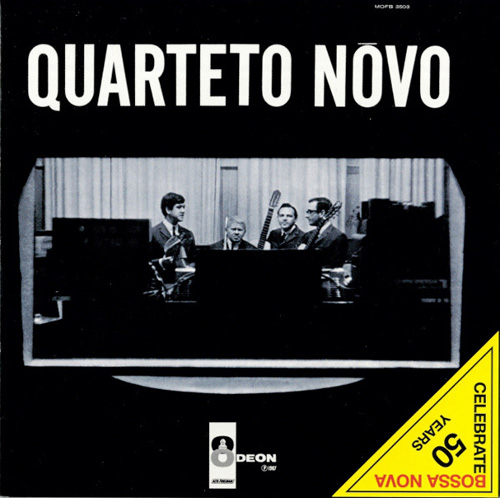Among the four tracks which are not from these albums, first up is a live version of ‘Okonkole y Trompa’ from debut album ‘Jaco Pastorius’. This recording comes from the Japanese release ‘Twins I & II’ and stays pretty close to the original as an atmospheric piece featuring some beautiful French horn. ‘Nativity’ from Weather Report and Return To Forever percussionist Airto Moreira’s 1977 album, ‘I’m Fine, How Are You?’, continues in the atmospheric vein before a more upbeat mood is struck on ‘Mood Swings’ from Mike Stern’s ‘Upside Downside’.
While the idea of seeing Jaco in other settings could well provide some interest, if there are only a couple of token examples his work with Joni Mitchell or Pat Metheny would almost certainly lend more insight than the selections here. All three of the tracks here were in fact included on 2003’s ‘Punk Jazz: The Jaco Pastorius Anthology’ alongside some of his work with Mitchell and Metheny as well recordings from the beginnings of Jaco’s career in an altogether more cohesive and informative compilation.
The only completely new material is a previously unissued recording of ‘Donna Lee’ from ‘The Birthday Concert’ session. Mainly serving the purpose of trombone feature, it feels like little more than a play through of the standard and you can see why it didn’t make the original album.
What is lacking in new material is somewhat made up for by the quality of the original albums. From the technical virtuosity of ‘Chromatic Fantasy’, to the superb ensemble sound of ‘Liberty City’ and compositional genius of ‘Three Views Of A Secret’, all facets of what made Pastorius such a fantastic musician are on show. However, they have been presented in a vaguely baffling way, presumably shifted around in order to warrant a compilation which is basically a triple album reissue of the aforementioned albums with double performances of tunes removed. The worst example of this is where ‘Chromatic Fantasy’ has been plonked carelessly between ‘Blackbird’ and ‘Word Of Mouth’, having the sole effect of destroying the intensity created by the segue on the original album. The fact that such a glaringly unmusical decision has made it onto this release is extraordinary.
A mercurial talent whose career was all too brief, you may think that there isn’t enough material in his back catalogue to warrant so many compilations. Anthology seems to lend some weight to that argument.
For a Jaco fan, there’s nothing much new here; to check out Pastorius for the first time, you’d be better off purchasing the albums separately and experiencing them as the artist intended. Joe Stoddart
Tracklist 1 :
1. Crisis 5:22
2. Blackbird 2:47
3. Chromatic Fantasy 3:19
4. Word Of Mouth 3:53
5. Three Views Of A Secret 6:09
6. John And Mary 10:53
7. Continuum 2:34
8. Liberty City 8:11
9. Soul Intro / The Chicken 8:00
10. Reza 10:36
11. Happy Birthday 1:48
Tracklist 2 :
1. Punk Jazz 4:35
2. Amerika 1:09
3. Invitation 6:42
4. Domingo 5:39
5. Sophisticated Lady 4:53
6. Fannie Mae 2:36
7. Eleven 0:25
8. Okonkole' Y Trompa 7:07
9. Nativity (Airto Moreira) 6:44
10. Mood Swings (Mike Stern) 6:06
11. Donna Lee (Previously Unreleased) 7:31
feat: Jack DeJohnette, Mike Stern, Airto Moreira, Jaco Pastorius, Toots Thielemans, Michael Brecker, Hubert Laws, Wayne Shorter, Peter Erskine, Don Alias, Othello Molineaux, Bob Mintzer




.jpg)



.jpg)



































.jpg)
.jpg)




